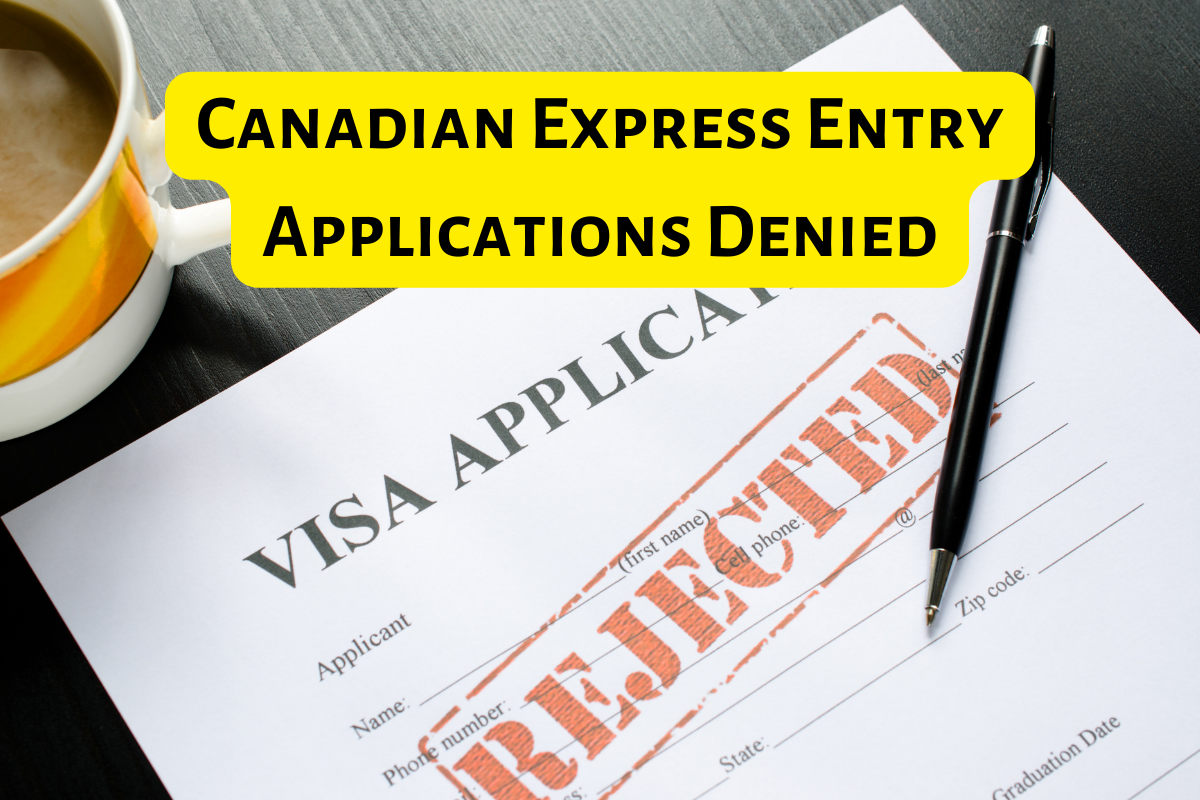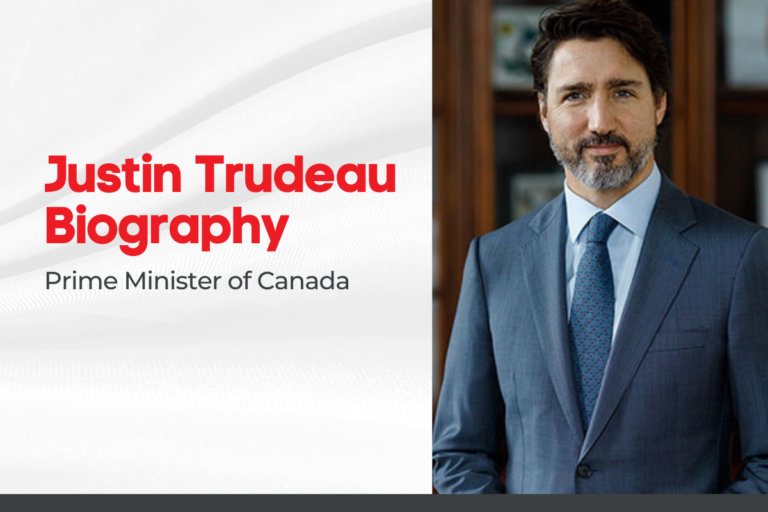What is The Reasons for Canadian Express Entry Applications Denied?
Canada has become an increasingly popular destination for individuals looking to start a new life in a new country. The Canadian government’s Express Entry program is designed to help skilled workers immigrate to Canada more quickly and efficiently. However, not all applicants are successful in their application. In this article, we will discuss the top 7 reasons Canadian Express Entry applications are denied.
- Misrepresentation
- Missing, Incomplete, or Expired Documents
- Waiting too long to submit
- Inability to Show Proof of Funds
- Criminal Inadmissibility
- Health Issues
- Not Hiring an Authorized Immigration Representative
1. Misrepresentation
One other common reason for Express Entry application denial is a misrepresentation. Misrepresentation occurs when an applicant provides false or misleading information on their application or during the immigration process. Misrepresentation can take many forms, such as providing fake documents, lying about work experience, language proficiency, or education, failing to disclose information about criminal or medical issues, or misrepresenting the purpose of the trip to Canada.
The consequences of misrepresentation can be severe. If an applicant is found to have misrepresented themselves, their application may be denied, and they may be barred from applying to immigrate to Canada for some time. Additionally, misrepresentation can lead to the revocation of a person’s Canadian permanent resident status or citizenship.
Therefore, it is essential to ensure that all information provided on an Express Entry application is truthful and accurate. Applicants must provide all necessary documentation to support their application and should not hide any information that may be relevant to their application.
In Conclusion, misrepresentation is a severe offense that can have long-term consequences. Applicants must ensure that they provide truthful and accurate information on their application and during the immigration process to avoid any issues with their application. By being honest and transparent, applicants can increase their chances of success in the Express Entry program and avoid any future complications with their immigration status in Canada.
2. Missing, Incomplete, or Expired Documents
Missing, incomplete, or expired documents are another common reason why Express Entry applications are denied. The Canadian government requires applicants to submit various documents as part of their application, including language test results, educational transcripts, and police certificates. These documents must be accurate, up-to-date, and in the format specified by the Canadian government.
If an applicant fails to submit all required documents or provides incomplete or expired documents, their application may be denied. This can be a frustrating experience for applicants who may have spent considerable time and effort preparing their applications.
To avoid this situation, applicants should carefully review the application instructions and ensure that they provide all required documents. Applicants should also check the expiration dates of any required documents, such as language test results and police certificates, and ensure that they are up-to-date before submitting their application.
If an applicant discovers that they have submitted incomplete or expired documents after submitting their application, they should contact the Canadian government as soon as possible to rectify the situation. In some cases, the government may allow applicants to submit missing documents or renew expired documents, but this must be done promptly to avoid delays or denial of the application.
In conclusion, missing, incomplete, or expired documents can result in the denial of an Express Entry application. Applicants must carefully review the application instructions and ensure that they provide all required documents, including those that are up-to-date and in the format specified by the Canadian government. By being organized and attentive to detail, applicants can increase their chances of success in the Express Entry program.
3. Waiting too long to submit
Another reason why Express Entry applications may be denied is waiting too long to apply. The Express Entry program has an annual quota for the number of applications that are accepted. Once the quota is met, no further applications are accepted until the following year.
As a result, applicants need to submit their application as soon as possible, once they meet all the eligibility criteria and have all the necessary documentation. Waiting too long to apply can mean missing out on the quota and having to wait until the next year to apply.
Additionally, the Express Entry system operates on a first-come, first-served basis. The longer an applicant waits to submit their application, the greater the competition they will face from other applicants. As a result, waiting too long to apply can reduce an applicant’s chances of receiving an Invitation to Apply (ITA) and ultimately lead to the denial of their application.
To avoid this situation, applicants should closely monitor their eligibility for the Express Entry program and be ready to submit their application as soon as they are eligible. This includes having all required documentation in hand and meeting the minimum required score in the Comprehensive Ranking System (CRS).
In conclusion, waiting too long to submit an Express Entry application can result in the denial of an application. Applicants should closely monitor their eligibility for the program and be prepared to submit their application as soon as they are eligible to maximize their chances of success in the program. By being proactive and attentive to the application process, applicants can increase their chances of receiving an ITA and achieving their goal of immigrating to Canada.
4. Inability to Show Proof of Funds
Another common reason why Express Entry applications may be denied is the inability to show proof of funds. As part of the application process, applicants must show that they have sufficient funds to support themselves and their family members upon arrival in Canada.
The amount of funds required varies depending on the size of the family and whether the applicant has a job offer or not. Applicants must show that they have enough funds to cover their living expenses for a certain period, typically six months, after arriving in Canada.
If an applicant is unable to show proof of funds, their application may be denied. This is because the Canadian government wants to ensure that new immigrants can support themselves and their family members financially while they settle in Canada and find employment.
To avoid this situation, applicants should carefully review the requirements for proof of funds and ensure that they have the necessary funds available before submitting their application. This may require saving money or obtaining a loan, if necessary. Applicants should also ensure that they have the necessary documentation to prove that they have the required funds, such as bank statements or letters from financial institutions.
In conclusion, the inability to show proof of funds can result in the denial of an Express Entry application. Applicants must carefully review the requirements for proof of funds and ensure that they have the necessary funds available before submitting their application. By being financially prepared and having the necessary documentation, applicants can increase their chances of success in the Express Entry program and achieve their goal of immigrating to Canada.
5. Criminal Inadmissibility
Criminal inadmissibility is another reason why Express Entry applications may be denied. The Canadian government takes criminal inadmissibility seriously and has strict requirements for applicants with criminal records or who have committed certain offenses.
Applicants may be deemed criminally inadmissible if they have been convicted of a criminal offense, such as a DUI, assault, or theft. They may also be deemed inadmissible if they have committed an offense that is punishable by a maximum sentence of ten years or more in Canada, even if they were not convicted of the offense.
If an applicant is deemed criminally inadmissible, their application may be denied. In some cases, applicants may be able to overcome their inadmissibility by applying for a Temporary Resident Permit (TRP) or Criminal Rehabilitation. However, these processes can be complex and time-consuming, and there is no guarantee of success.
To avoid this situation, applicants with criminal records should disclose their records and seek legal advice before applying to the Express Entry program. They should also provide all necessary documentation related to their record, including court documents and police reports.
In conclusion, criminal inadmissibility can result in the denial of an Express Entry application. Applicants with criminal records should disclose their records and seek legal advice before applying to the program. By being upfront about their record and providing all necessary documentation, applicants can increase their chances of success in the program and achieve their goal of immigrating to Canada.
6. Health Issues
Health issues can also lead to the denial of Express Entry applications. The Canadian government requires all applicants to undergo a medical examination to ensure that they are in good health and not likely to place excessive demand on Canada’s health or social services.
If an applicant has a health condition that is considered a danger to public health or safety, or that is likely to cause excessive demand on Canada’s health or social services, their application may be denied. Examples of health conditions that may result in inadmissibility include infectious diseases, mental health conditions, and physical disabilities that are likely to require extensive medical treatment or support.
To avoid this situation, applicants should carefully review the medical examination requirements and ensure that they are in good health before submitting their application. They should also disclose any health conditions and provide all necessary medical documentation, including medical records and test results.
In some cases, applicants may be able to overcome their inadmissibility by demonstrating that their health condition will not cause an excessive demand on Canada’s health or social services. This may require the submission of additional documentation, such as a medical opinion from a specialist or evidence of private health insurance.
In conclusion, health issues can result in the denial of an Express Entry application. Applicants should carefully review the medical examination requirements and ensure that they are in good health before submitting their application. By being upfront about any health conditions and providing all necessary documentation, applicants can increase their chances of success in the program and achieve their goal of immigrating to Canada.
7. Not Hiring an Authorized Immigration Representative
While not mandatory, hiring an authorized immigration representative, such as a lawyer or a consultant, can greatly improve the chances of a successful Express Entry application. Immigration representatives are knowledgeable about the Canadian immigration system and can provide valuable guidance and assistance throughout the application process.
However, if an applicant chooses to hire an unauthorized or fraudulent immigration representative, their application may be denied. This is because the Canadian government takes fraudulent or unethical representation seriously and wants to ensure that applicants are not taken advantage of by unauthorized representatives.
To avoid this situation, applicants should only hire authorized immigration representatives who are registered with the Immigration Consultants of Canada Regulatory Council (ICCRC) or members of a provincial or territorial law society. They should also verify the representative’s credentials before hiring them, such as checking their registration status with the ICCRC or contacting the law society for verification.
In conclusion, not hiring an authorized immigration representative can result in the denial of an Express Entry application if the applicant hires an unauthorized or fraudulent representative. Applicants should only hire authorized representatives and verify their credentials before hiring them to avoid any issues during the application process. By working with a reputable and knowledgeable representative, applicants can increase their chances of success in the program and achieve their goal of immigrating to Canada.
How Hiring an Immigration Attorney Can Help You
Hiring an immigration attorney can greatly improve an applicant’s chances of success in the Express Entry program. Immigration attorneys are experts in Canadian immigration law and are well-equipped to provide guidance and assistance throughout the application process. Here are some ways that hiring an immigration attorney can help you:
- Legal expertise: Immigration attorneys have extensive knowledge of Canadian immigration law and can provide accurate and up-to-date advice on the Express Entry program. They can assist with the application process, including helping to fill out forms, gathering required documentation, and preparing for interviews.
- Case assessment: Immigration attorneys can assess an applicant’s case and guide their eligibility for the program. They can review an applicant’s education, work experience, language proficiency, and other factors to determine if they meet the requirements of the program.
- Representation: Immigration attorneys can represent an applicant in their interactions with the Canadian government, such as responding to requests for additional information or attending interviews. They can also assist with any issues or concerns that may arise during the application process.
- Appeals: If an applicant’s Express Entry application is denied, an immigration attorney can assist with appeals and review processes. They can guide the reasons for the denial and help to identify any errors or issues that may have led to the denial.
- Peace of mind: Hiring an immigration attorney can provide peace of mind during the application process. Applicants can be assured that they are receiving accurate and reliable advice from a knowledgeable professional and that their application is being handled properly.
In conclusion, hiring an immigration attorney can provide numerous benefits for applicants to the Express Entry program. By providing legal expertise, case assessment, representation, appeals assistance, and peace of mind, immigration attorneys can help applicants navigate the complex process and increase their chances of success in the program.




